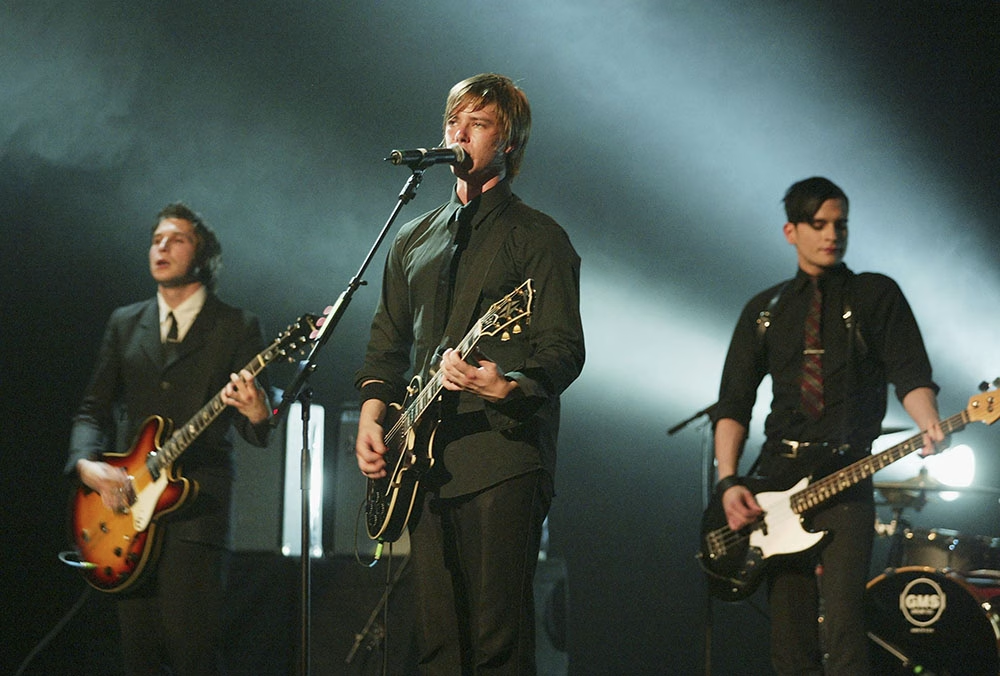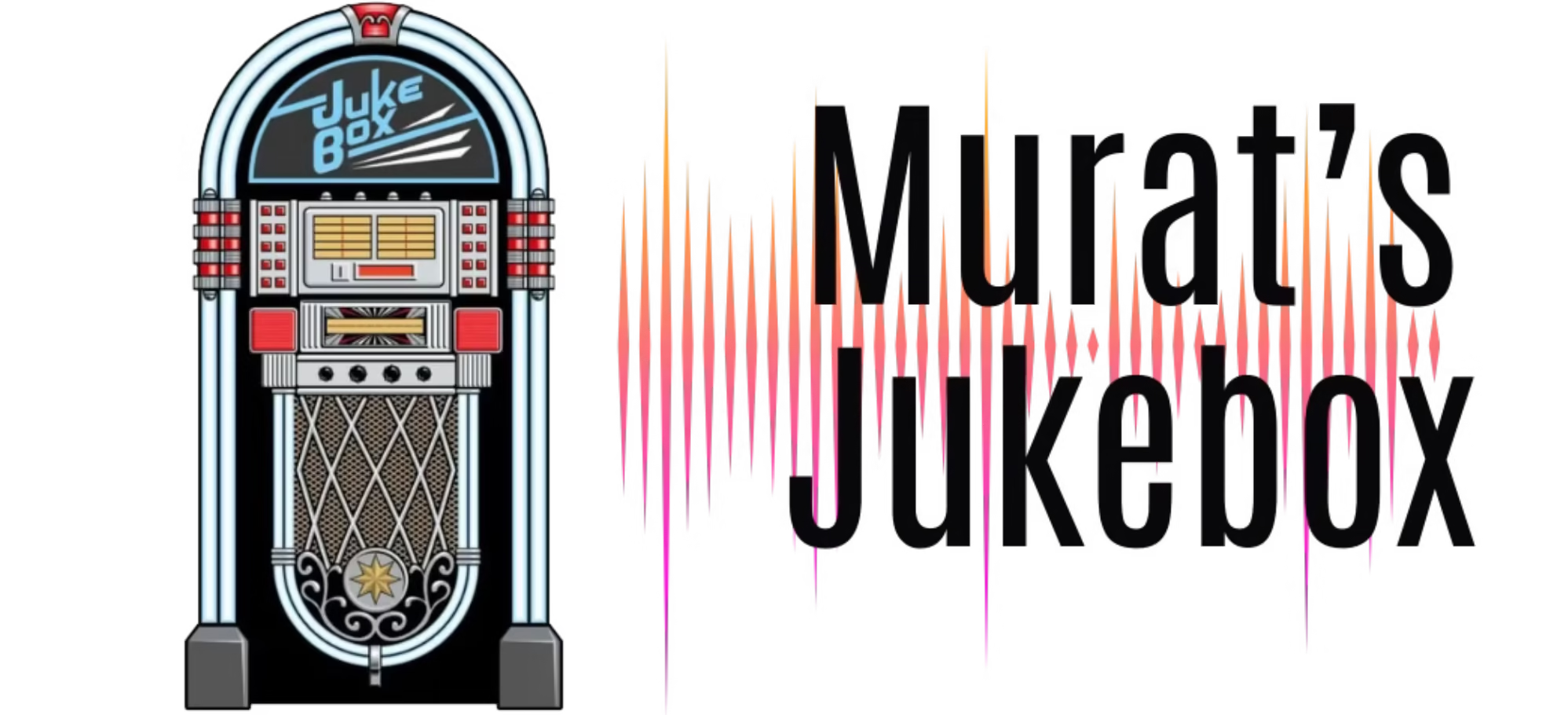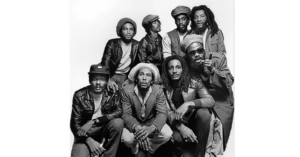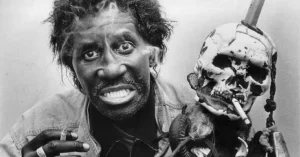Interpol: The Revivalists of Post-Punk
Interpol. Introduction
In the early 2000s, the music world witnessed a resurgence of post-punk and garage rock sensibilities, largely driven by a wave of New York-based bands. Among these, Interpol emerged not just as a frontrunner of the movement but as a band that redefined mood, style, and sonic architecture for a new generation. With their brooding soundscapes, haunting vocals, and minimalist aesthetic, Interpol carved out a niche that felt both retro and modern. Often compared to Joy Division and The Chameleons, the band managed to channel the spirit of 1980s gloom into something that felt distinctly 21st-century.
Interpol. Formation and Early Days
Interpol was formed in New York City in 1997, when Daniel Kessler (guitar/vocals) recruited fellow NYU student Carlos Dengler (bass/keyboard). They were soon joined by Paul Banks, whose somber and restrained vocal style became a signature of their sound. The original drummer, Greg Drudy, was later replaced by Sam Fogarino in 2000, solidifying what many consider to be the “classic” Interpol lineup.
The late 1990s and early 2000s were marked by a distinct absence of bands exploring the cold, stark textures of post-punk. While Britpop had waned and nu-metal dominated U.S. charts, Interpol’s sound was an anomaly — yet a refreshing one. Their early demos and EPs began circulating in underground circles, catching the attention of indie labels and fans eager for something darker and more cerebral.
Turn On the Bright Lights (2002)
Interpol’s debut album, “Turn On the Bright Lights,” released in August 2002 via Matador Records, is widely considered a modern classic. The album was an immediate critical success, praised for its atmosphere, lyricism, and emotional depth. It fused the melancholia of Joy Division with the angularity of Television, yet maintained its own identity.
Songs like “Obstacle 1,” “NYC,” and “PDA” showcased a formula that was both elegant and raw. Paul Banks’ cryptic lyrics and baritone voice were counterbalanced by Kessler’s precise guitar lines and Dengler’s melodic, often theatrical bass playing. The album painted a sonic portrait of urban alienation, youthful confusion, and restrained angst — themes that resonated deeply with early 2000s youth, especially in a post-9/11 New York City.
“Turn On the Bright Lights” has consistently appeared on lists of the greatest albums of the 2000s, and for good reason. It defined a moment and a sound, not through aggression or innovation, but through meticulous craftsmanship and mood.
Antics (2004)
Their sophomore album, “Antics,” released in 2004, followed up with a more polished, accessible sound without sacrificing depth. It contained some of the band’s most recognizable songs, including “Slow Hands,” “Evil,” and “C’mere.” While less stark than their debut, Antics embraced a slightly more upbeat and melodic tone while retaining lyrical ambiguity and emotional restraint.
Critics noted the band’s evolution, with a greater emphasis on hooks and structure. Commercially, Antics expanded their audience significantly, propelling Interpol from indie darlings to international alt-rock stars. They became regulars at festivals like Coachella and Glastonbury and played on major television programs, further cementing their global influence.

Our Love to Admire (2007) and Major Label Shift
In 2007, Interpol made a bold move by signing with Capitol Records and releasing their third album, “Our Love to Admire.” This marked a turning point in their career — both in sound and critical reception. The album incorporated more orchestration and atmospheric elements, evident in tracks like “Pioneer to the Falls” and “Rest My Chemistry.” While some praised the ambition, others felt the band was moving too far from the raw power of their early work.
Despite mixed reviews, the album sold well and demonstrated that Interpol was not content with stagnation. The darker, grander textures hinted at a band striving to evolve, even if it meant alienating some fans.
Lineup Changes and Self-Titled Album (2010)
The release of the self-titled “Interpol” album in 2010 was marred by a significant lineup change: Carlos Dengler departed the band shortly after recording was completed. His role as bassist and keyboardist had been integral to the band’s sonic identity. Though the album had moments of brilliance — like the tense, driving “Barricade” and the atmospheric “Lights” — it was also seen as somewhat unfocused.
Dengler’s absence left a gap, and while bassist Brad Truax and keyboardist Brandon Curtis would later fill in for live performances, Interpol was now a trio creatively. The change brought a shift in chemistry that was felt throughout their subsequent work.
El Pintor (2014)
“El Pintor” — an anagram of “Interpol” — arrived in 2014 as a rejuvenation of sorts. Paul Banks, now also handling bass duties, helped craft a leaner, more aggressive sound. Songs like “All the Rage Back Home” and “My Desire” brought back the urgency of their earlier work, but with a matured edge.
Critics generally responded well, viewing it as a return to form. The production was tighter, the songwriting more immediate. El Pintor confirmed that Interpol still had much to say, even without the original lineup.
Marauder (2018) and The Other Side of Make-Believe (2022)
Their sixth studio album, “Marauder,” produced by Dave Fridmann (known for his work with The Flaming Lips and MGMT), took a more organic and raw approach. Recorded largely on tape, it showcased a looser, more experimental Interpol. Songs like “The Rover” and “If You Really Love Nothing” highlighted a band willing to stretch its aesthetic boundaries.
In 2022, Interpol released “The Other Side of Make-Believe,” an album written during the COVID-19 pandemic and shaped by isolation and uncertainty. It leaned into introspection and featured more piano-driven compositions. While divisive, the album demonstrated the band’s continued evolution and refusal to settle into formula.
Interpol. Musical Style and Influence
Interpol’s sound is defined by melancholic atmospheres, precise guitar interplay, and emotionally detached yet poetic vocals. While often lumped into the post-punk revival movement alongside bands like The Strokes and Franz Ferdinand, Interpol maintained a more serious, almost literary tone.
Their influence can be seen in bands like Editors, White Lies, and even Arctic Monkeys in their more brooding phases. They helped reintroduce the aesthetic and sonic language of post-punk to a new generation — not as pastiche, but as a legitimate and enduring form of expression.
Interpol. Legacy
Over two decades into their career, Interpol has become a staple of modern rock. Their early albums remain touchstones of early-2000s indie, while their later work reflects a band committed to growth. Though trends have come and gone, Interpol has remained relevant — largely because they’ve always stayed true to their vision.
Their live performances continue to draw large crowds, and their discography continues to be discovered by new fans. They occupy a rare space: neither mainstream giants nor underground obscurities — but rather, essential outsiders, shaping the edges of alternative music with style and subtle power.





